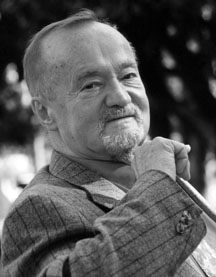Stephen Toulmin
| Stephen Edelston Toulmin | |
|---|---|
 |
|
| Born | 25 March 1922 London, England |
| Died | 4 December 2009 (aged 87) Los Angeles, California |
| Alma mater | King's College, Cambridge |
| Era | 20th-century philosophy |
| Region | Western Philosophy |
| School | Analytic |
|
Main interests
|
Meta-philosophy, argumentation, ethics, rhetoric, modernity |
|
Notable ideas
|
The Toulmin Model The Toulmin method Good reasons approach |
Stephen Edelston Toulmin (/ˈtuːlmɪn/; 25 March 1922 – 4 December 2009) was a British philosopher, author, and educator. Influenced by Ludwig Wittgenstein, Toulmin devoted his works to the analysis of moral reasoning. Throughout his writings, he sought to develop practical arguments which can be used effectively in evaluating the ethics behind moral issues. His works were later found useful in the field of rhetoric for analyzing rhetorical arguments. The Toulmin Model of Argumentation, a diagram containing six interrelated components used for analyzing arguments, was considered his most influential work, particularly in the field of rhetoric and communication, and in computer science.
Stephen Toulmin was born in London, UK, on 25 March 1922 to Geoffrey Edelson Toulmin and Doris Holman Toulmin. He earned his Bachelor of Arts degree from King's College, Cambridge in 1942, where he was a Cambridge Apostle. Soon after, Toulmin was hired by the Ministry of Aircraft Production as a junior scientific officer, first at the Malvern Radar Research and Development Station and later at the Supreme Headquarters of the Allied Expeditionary Force in Germany. At the end of World War II, he returned to England to earn a Master of Arts degree in 1947 and a PhD in philosophy from Cambridge University, subsequently publishing his dissertation as An Examination of the Place of Reason in Ethics (1950). While at Cambridge, Toulmin came into contact with the Austrian philosopher Ludwig Wittgenstein, whose examination of the relationship between the uses and the meanings of language shaped much of Toulmin's own work.
...
Wikipedia
